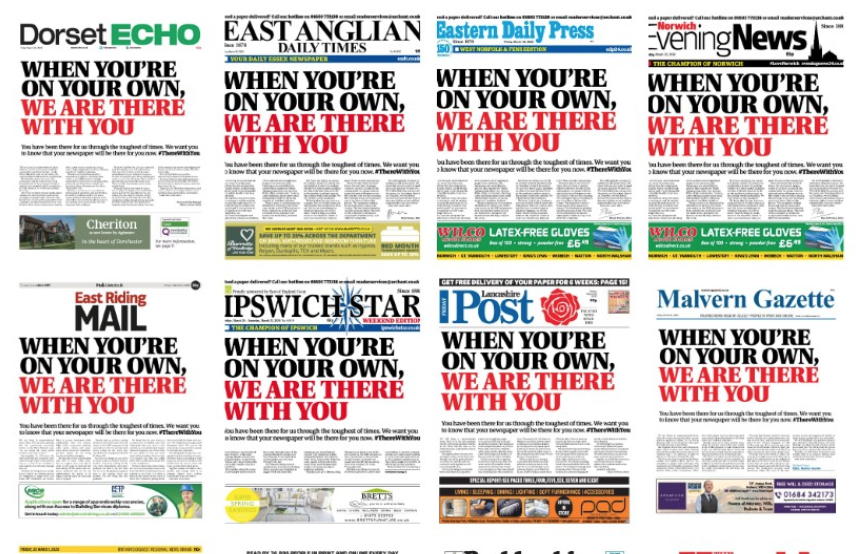
The coronavirus crisis has caused a caused mass disruption to the journalism industry. Offices have been closed, lockdown has restricted reader access to newspapers and advertising revenue losses have led to thousands of employees being put on furlough.
But the pandemic has also inspired some news businesses across the UK and beyond to find news ways of reporting and sharing news with readers and viewers.
Below, Press Gazette showcases the best journalistic innovations to emerge from the crisis so far. The examples showcased below were selected by an expert panel of judges from the long-list of entries submitted by Press Gazette readers.
If there is some excellent journalism you have spotted which we have missed, please submit it for consideration in the second round of judging.
Other Coronavirus Journalism Excellence categories:
- exclusive news coverage
- investigations
- breaking news and live blogs
- podcasts
- data journalism
- comment/opinion
- video/TV.
Best journalism innovations of the coronavirus pandemic
Reach: Facebook update groups
Early on during the outbreak of the disease, UK regional publishing giant Reach set up dedicated coronavirus Facebook groups for areas that it covers. Moderated by journalists, the groups have built up large memberships – around 200,000 in total at the time of submission. The judges said: “This is a nice idea and a good use of Facebook groups to both provide information and provide a community conversation platform.”

Sky News: Coronavirus case checker
Using a variety of official data sources, Sky News launched this tool to allow users to find out about cases in their area. Initially, the checker was updated manually on a daily basis. It was then automated by a team of developers who used cloud-based technology to gather and store data as soon as it became available. The judges described this as a “nice, clean presentation of data-generated graphics to provide updated information on the scale of pandemic across the UK, enabling users to find their desired locality, compare it with others and track the situation over time”.
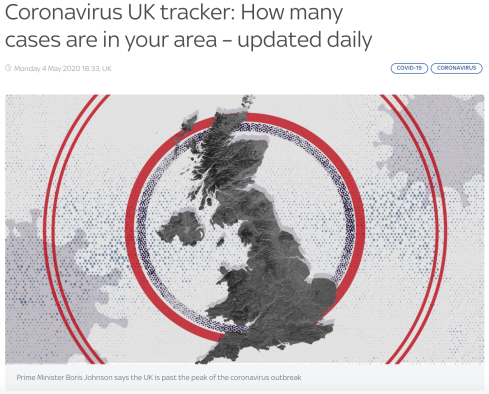
#Therewithyou
In mid-March, as part of a campaign to promote the value of local newspapers to their communities during the crisis, more than 80 titles across the UK’s four major publishers ran front pages with the headline: WHEN YOU’RE ON YOUR OWN, WE ARE THERE WITH YOU. The bosses behind the scheme were Archant’s Matt Kelly, Reach’s David Higgerson, Newsquest’s Toby Granville and Jeremy Clifford of JPI, as well as several editors.
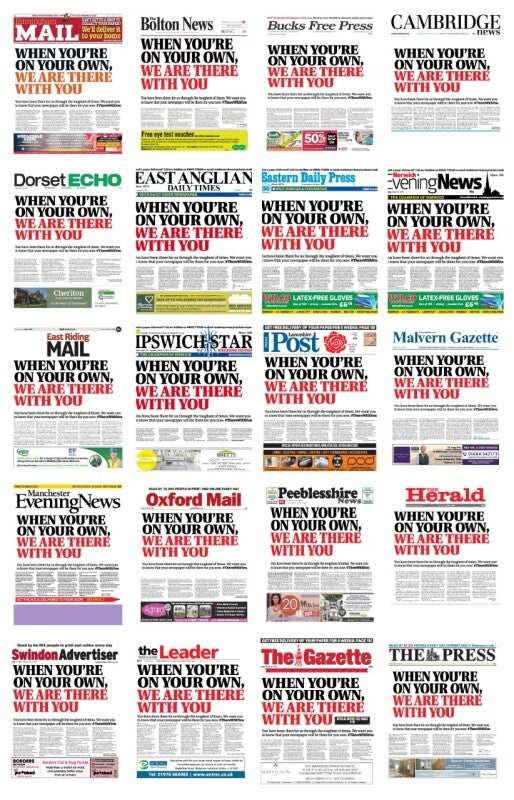
The Sun: Who Cares Wins/Hail A Hero
Earlier this week, The Sun celebrated raising £1m as part of its Who Cares Wins appeal. Donations from readers will go towards “care packages, food and vital equipment for brave nurses, doctors and NHS staff on the Covid-19 front line”. The Sun has simultaneously been running its Hail A Hero campaign, which allows readers to share “stories of acts of helpfulness, kindness and selflessness from the general public”. The Sun promises to print every nomination it receives as part of the project.

Subtext (USA)
As reported by Medium, newsrooms across the United States are offering their readers text message updates, which can be signed up for via Subtext. The judges said the “creative use of SMS to engage with local community, address questions and foster productive collaboration on story ideas… seems to be resulting in high engagement, as well as improved reader relationships”.
TheJournal.ie: debunking misinformation (Ireland)
TheJournal.ie news team, led by deputy editor Christine Bohan
Fake news and misinformation has become a major issue across the world during the coronavirus crisis. TheJournal.ie has taken it upon itself to tackle myths spreading on social media and elsewhere. The judges said: “This is a great use of their existing fact-checking initiative to focus on debunking fake information around the virus.”
Telegraph: You Are Not Alone
Features team
This new website section was set up by the Telegraph features team to support its readers with stories of how we can work together to cope with the pandemic. The section, which includes Q&As and conversations with Telegraph journalists, has led to a new daily newsletter, a charity appeal and countless tales of support being shared with readers.
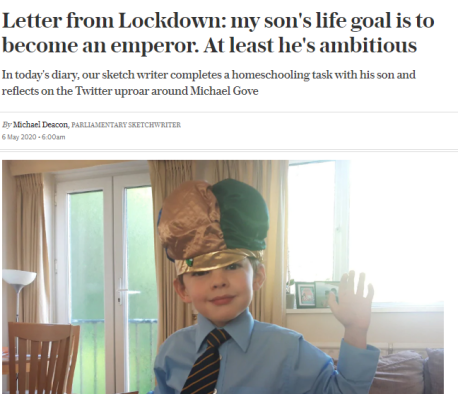
Bauer Radio in Scotland: Nicola Sturgeon Answers Your Questions
Ewen Cameron, Rob Waller, Alan Smith, Paul Carlin, Michael MacRae, Fiona Gray
Bauer Radio’s 14 Scottish stations were brought together for the first time to broadcast the interview and Q&A with the First Minister. The team, which also made a video of the interview, set up a web page for listeners to submit their questions, from which they decided who to call. In all, more than 400 questions were submitted and the project led to thousands of comments on social media. The interview was followed up widely across the British media, with a stand-out line about Sturgeon longing to hug her parents after lockdown ends. The judging panel said Bauer Radio showed “good initiative to set up this extended interview and to facilitate cooperation across the various shows in the network, resulting in excellent audience engagement and nice pickup from other media outlets”.
ITV News: The Rundown
In an effort to reach new young readers at a crucially important time for news, ITV News has launched The Rundown. Available via Snapchat and Instagram, The Rundown aims to deliver trusted and reliable news and information to teenagers. The innovation aims to tailor “ITV’s public service journalism to their needs and on platforms where they consume content, and reaching new audiences who don’t watch TV news”.
Eastern Daily Press: HereToHelp
The newspaper’s HereToHelp campaign, launched early in the Covid-19 crisis, aims to highlight the good deeds of many people and offer support to readers. Out of this project came #NotAlone, a mini-campaign that ran a series of videos from Norfolk people encouraging others to look out for those suffering from mental health issues.
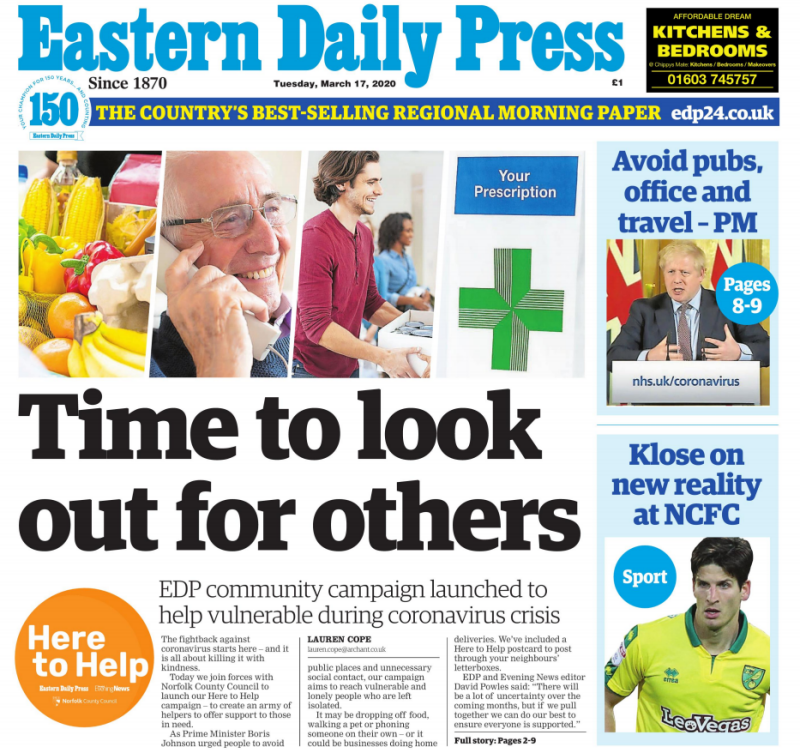
Email pged@pressgazette.co.uk to point out mistakes, provide story tips or send in a letter for publication on our "Letters Page" blog
